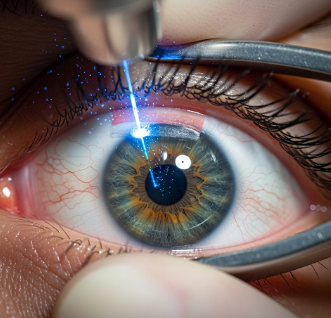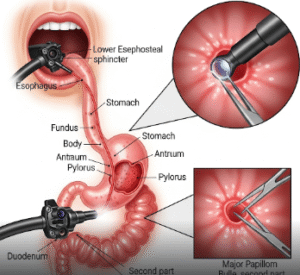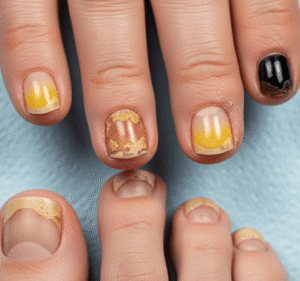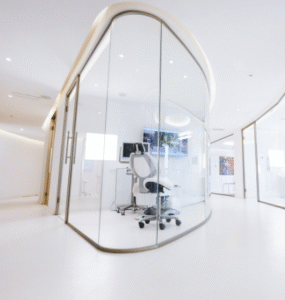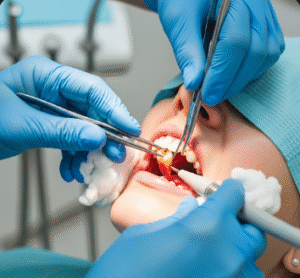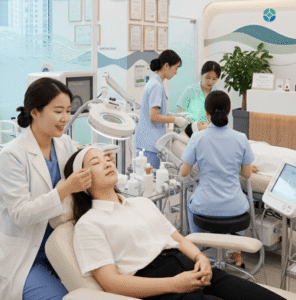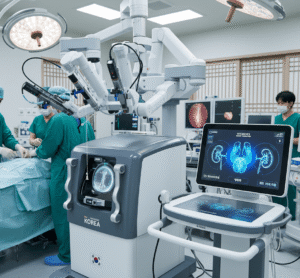Overview
Photorefractive Keratectomy (PRK) is a laser eye surgery that corrects refractive errors such as myopia (nearsightedness), hyperopia (farsightedness), and astigmatism. PRK reshapes the cornea using an excimer laser, improving visual acuity without the need for glasses or contact lenses.
South Korea is renowned for advanced ophthalmology centers, offering state-of-the-art laser technology, highly experienced surgeons, and meticulous post-operative care, making PRK a safe and effective vision correction option.
What is Photorefractive Keratectomy (PRK)?
PRK is a surface ablation laser procedure that involves:
✔ Removing the outer corneal epithelial layer.
➔ Reshaping the underlying corneal stroma with an excimer laser to correct refractive errors.
● No corneal flap creation (unlike LASIK), reducing the risk of flap-related complications.
★ Gradual epithelial regrowth restores the protective surface of the eye after surgery.
PRK is suitable for patients with thin corneas, dry eyes, or other corneal conditions that may not be ideal for LASIK.
What are the Benefits?
PRK provides several advantages:
✔ Effective correction of myopia, hyperopia, and astigmatism.
➔ No corneal flap, reducing the risk of flap-related complications.
● Long-term stability of vision correction.
★ Suitable for patients with thin corneas or certain corneal irregularities.
➤ Minimally invasive and outpatient procedure, allowing quick recovery of daily activities.
Procedure Details
1) How should I prepare for Photorefractive Keratectomy (PRK)?
Proper preparation ensures safety and optimal outcomes:
✔ Comprehensive eye examination: Includes corneal thickness measurement, topography, and pupil assessment.
➔ Medication review: Discontinue contact lenses for a period before surgery.
● Patient counseling: Discuss procedure, benefits, expected recovery, and potential risks.
★ Fasting: Not typically required, but instructions may vary for sedation if used.
➤ Pre-operative hygiene: Avoid eye makeup or lotions on the day of surgery.
2) What happens during the procedure Photorefractive Keratectomy (PRK)?
PRK is usually performed under topical anesthesia in a sterile outpatient setting:
✔ Anesthetic eye drops: Numb the surface of the eye.
➔ Epithelial removal: Outer layer of cornea gently removed to expose underlying tissue.
● Laser reshaping: Excimer laser reshapes the cornea to correct refractive errors.
★ Post-laser application: Protective contact lens placed to aid epithelial healing.
➤ Monitoring: Patient observed briefly before discharge; total procedure time ~15–30 minutes per eye.
Korean ophthalmologists use high-precision lasers and advanced imaging systems to ensure accurate correction and minimal tissue removal.
3) What happens after Photorefractive Keratectomy (PRK)?
Post-procedure care focuses on healing, comfort, and vision improvement:
✔ Protective contact lens: Worn for several days to aid epithelial regrowth.
➔ Eye drops: Antibiotics, anti-inflammatories, and lubricants to prevent infection and reduce inflammation.
● Vision changes: Blurry vision initially; gradual improvement over 1–4 weeks.
★ Follow-up visits: Monitor epithelial healing, corneal health, and visual acuity.
➤ Lifestyle precautions: Avoid rubbing eyes, swimming, and strenuous activity until cleared by the surgeon.
Risks / Benefits
Possible Risks:
✔ Temporary blurred vision or glare
➔ Dry eyes or discomfort
● Infection or corneal haze
★ Delayed epithelial healing or scarring (rare)
➤ Regression of vision correction over time in some cases
Major Benefits:
✔ Safe and effective refractive correction
➔ No corneal flap required, reducing flap-related complications
● Long-term stable vision improvement
★ Suitable for patients with thin corneas or specific corneal irregularities
➤ Minimally invasive outpatient procedure with rapid recovery
Recovery and Outlook
✔ Initial recovery: 3–5 days with protective contact lens and prescribed drops.
➔ Vision improvement: Gradual; near optimal vision usually achieved within 1–4 weeks.
● Activity restrictions: Avoid eye rubbing, swimming, and strenuous work for the first week.
★ Long-term outcome: Most patients achieve 20/20 or better vision, with high satisfaction rates.
➤ Follow-up: Regular check-ups to monitor corneal healing and visual stability.
When To Call the Doctor
Seek immediate medical advice if you notice:
✔ Severe eye pain or sudden vision loss
➔ Redness, discharge, or signs of infection
● Persistent glare, halos, or double vision
★ Contact lens intolerance or delayed epithelial healing
➤ Any unusual changes in vision or discomfort not relieved by medications
Best Korea Option / Process
South Korea provides expert PRK care with:
✔ Leading hospitals: Samsung Medical Center, Asan Medical Center, Seoul National University Hospital.
➔ Advanced excimer laser systems: High-precision corneal reshaping with minimal tissue removal.
● Experienced ophthalmologists: Skilled in surface ablation techniques and customized vision correction.
★ Comprehensive post-procedure care: Protective lenses, medications, and follow-up visits for optimal healing.
➤ Medical tourism support: Translation, travel coordination, and continuity of care for international patients.
✅ Highlights:
✔ PRK corrects refractive errors safely and effectively
➔ No corneal flap needed, reducing flap-related risks
● Gradual visual recovery over 1–4 weeks
★ Risks include dry eyes, glare, corneal haze, or delayed healing
➤ Korean hospitals provide advanced lasers, expert surgeons, and excellent post-operative care

